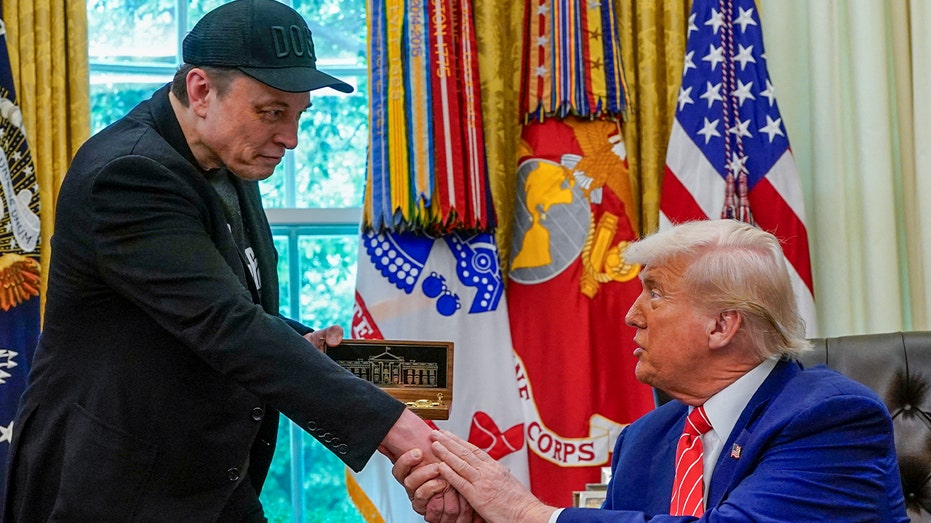Trump and Musk Feud: Who Deserves the Most Credit for Trump's Resounding 2024 White House Victory?
Tensions flare as Donald Trump and Elon Musk trade barbs over credit for the 2024 election victory, spotlighting Musk's recent battleground campaigning efforts.

The escalating dispute between President Donald Trump and tech titan Elon Musk has captivated political observers, fueling fresh debate over the true impact of Musk’s support during the fiercely contested 2024 presidential election. As the two high-profile figures continue exchanging sharp words in public, questions abound regarding just how crucial Musk’s backing was to Trump’s return to the White House.
Speaking to reporters this week, President Trump downplayed Musk’s influence, declaring, “I think I would have won” even if Musk had not intervened on his behalf during last year’s campaign. The president’s remarks come amid rapidly deteriorating relations between the former allies, marked by disagreements over tax and spending policies, as well as a series of public jabs over their roles in the most recent election.
Not one to back down, Musk delivered a blunt rebuttal on social media, posting, “Without me, Trump would have lost the election, Dems would control the House and the Republicans would be 51-49 in the Senate…Such ingratitude.” Musk, who commands global attention as the CEO of both Tesla and SpaceX, was highly visible in lending vocal support and financial muscle to Trump’s campaign. He officially endorsed Trump in July 2023, shortly after the assassination attempt in Butler, Pennsylvania, and quickly became the top individual donor of the cycle, contributing nearly $300 million through a Trump-aligned super PAC, America PAC.
Much of this unprecedented funding fueled get-out-the-vote operations and targeted advertising, especially in key battleground states where the stakes were highest. Nowhere was Musk’s influence more apparent than in Pennsylvania, a state that proved pivotal for Trump’s narrow victory. Musk personally joined Trump at an October rally in Butler, then staged a series of town halls across the state and established a campaign “war room” in Pittsburgh, further cementing his presence and commitment to the GOP effort.
Trump himself acknowledged Musk’s visible campaigning in Pennsylvania but maintained confidence in his own political appeal and ground game. Citing chief of staff Susie Wiles, Trump insisted he “would have won Pennsylvania easily anyway,” hinting that Musk’s contributions, while helpful, were not decisive in securing victory in the Keystone State.
The widening rift between the two men appears rooted not only in post-election credit-taking but also in deeper policy disagreements. Musk’s increasingly vocal opposition to some of Trump’s economic initiatives, including the president’s signature tax cuts and new spending proposals, has placed the billionaire mogul at odds with Republican leadership and grassroots activists alike.
Campaign insiders and GOP strategists, meanwhile, are quick to emphasize the critical role played by Musk and other high-dollar donors. Veteran consultant John Brabender acknowledged that “Elon and many others played an important role in helping the president win states all across America,” yet stressed, “the bottom line is there’s only one constant and one person who is most responsible, by far, and that’s President Trump. That’s who people voted for.”
Other party operatives contend that Musk’s resources were vital, if not singularly determinative, in fortifying Trump’s position nationwide. The coordinated efforts of America PAC, MAGA Inc, and Preserve America, they argue, delivered enhanced field organization, mail outreach, and digital communications that helped turn out thousands of low-propensity voters. According to Erie County GOP chair Tom Eddy, Musk’s wealth and celebrity “helped Trump significantly,” though he echoed Trump’s insistence on ultimate credit, noting, “These people helped me, but I won.”
In Michigan—a state that also proved decisive—a longtime Republican strategist described Musk’s claim to being kingmaker as both “incredibly arrogant” and likely accurate, reflecting the mixed feelings within the GOP about the influence of wealthy donors versus the enduring appeal of the Trump brand.
As the fallout continues, conversations between Musk’s team and Trump aides reportedly aim to mend fences and refocus party unity heading into the next political cycle. For now, the high-profile clash underscores not only the shifting power dynamics at the intersection of Silicon Valley and Washington but also the perennial debates over money, influence, and personal loyalty in American politics.




